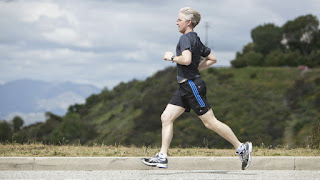A typical weight reduction surgery is connected with long haul gastrointestinal issues and nourishment narrow mindedness, a late review proposes.
Analysts inspected information on 249 to a great degree fat patients who had what's known as laparoscopic Roux-en-Y gastric sidestep, which lessens the stomach to a little pocket about the measure of an egg.
Two years after surgery, these patients had lost around 31 percent of their aggregate body weight by and large. Be that as it may, contrasted with the control gathering of 295 fat individuals who didn't have operations, the gastric sidestep patients were significantly more prone to experience heartburn and a powerlessness to endure different sustenances.
"It was at that point known from past reviews that the Roux-en-Y gastric sidestep may disturb gastrointestinal side effects after surgery," said lead think about creator Dr. Thomas Boerlage of MC Slotervaart in Amsterdam.
"In any case, a large portion of these reviews concern the main year after surgery," Boerlage included by email.
Toward the begin of the review in 2012, patients were 46 years of age by and large. Around 45 percent of them had hypertension and 29 percent had diabetes.
Specialists overviewed the greater part of the patients and the examination gathering of hefty individuals who didn't have surgery, to get some information about 16 distinctive gastrointestinal manifestations. They found the postoperative gathering had 2.2 side effects by and large, contrasted with 1.8 with the control bunch.
The most widely recognized gastrointestinal issues included acid reflux, stomach murmuring, tooting, burping, and hard or free stools, specialists report in the British Journal of Surgery.
Hunger torments were more claimed in the non-surgery gather.
Around 71 percent of the postoperative patients experienced sustenance prejudice, contrasted and 17 percent in the control aggregate.
Among the subset of surgery patients who reported sustenance prejudice, half of them had an abhorrence for no less than four unique sorts of nourishment and 14 percent said the narrow mindedness was extremely troublesome.
The nourishments post-surgery patients regularly reported as being hazardous were broiled sustenances, carbonated beverages, cakes, pies and baked goods. Some likewise reported issues with frozen yogurt and zesty sustenance.
There wasn't any relationship between the measure of weight reduction amid the review and the quantity of nourishment bigotries.
Past its little size, one restriction of the review is that scientists needed information on manifestations before surgery, making it difficult to figure out what gastrointestinal or stomach related problems may really be because of the operations, the creators note.
Despite the fact that Roux-en-Y was the most widely recognized kind of gastric sidestep when this review was done, another methodology known as sleeve gastrectomy, which lessens the stomach to the span of a banana, now represents more operations, said Dr. Andrei Keidar of Rabin Medical Center and Tel Aviv University in Israel.
"It will probably have less gastrointestinal symptoms," Keidar, who wasn't required in the review, said by email.
Gastric sidestep patients are additionally encouraged to keep away from specific nourishments that might be difficult to process after surgery, and a considerable lot of the patients encountering sustenance prejudice neglected to take after this counsel, noted Dr. Anita Courcoulas, a specialist at the University of Pittsburgh Medical Center who wasn't required in the review.
"The top sustenance bigotries included carbonated refreshments, seared nourishments, and red meats, which all potential sidestep patients are advised to keep away from or dispose of," Courcoulas said by email. "So while the review gives helpful data, it is not astonishing."
Rules prescribing weight reduction surgery as a treatment for diabetes in stout patients were as of late embraced by 45 worldwide associations, diabetes authorities and specialists, including the International Diabetes Federation, the American Diabetes Association, the Chinese Diabetes Society and Diabetes India.
By and large, the rules say, surgery can prompt to diminishments in blood glucose levels underneath the Type 2 diabetes determination limit or to a significant change in blood glucose levels. By and large this would prompt to patients having the capacity to surrender or fundamentally diminish their diabetes pharmaceuticals
















